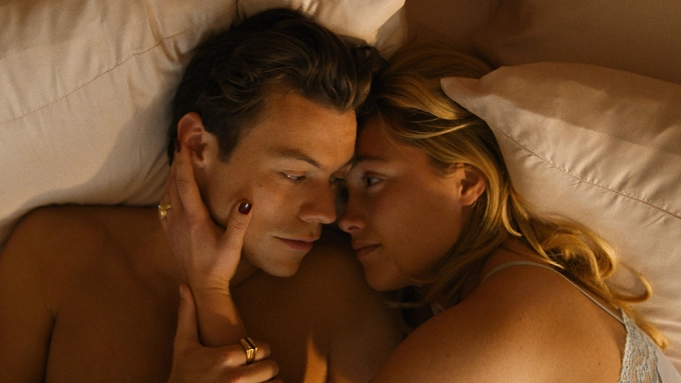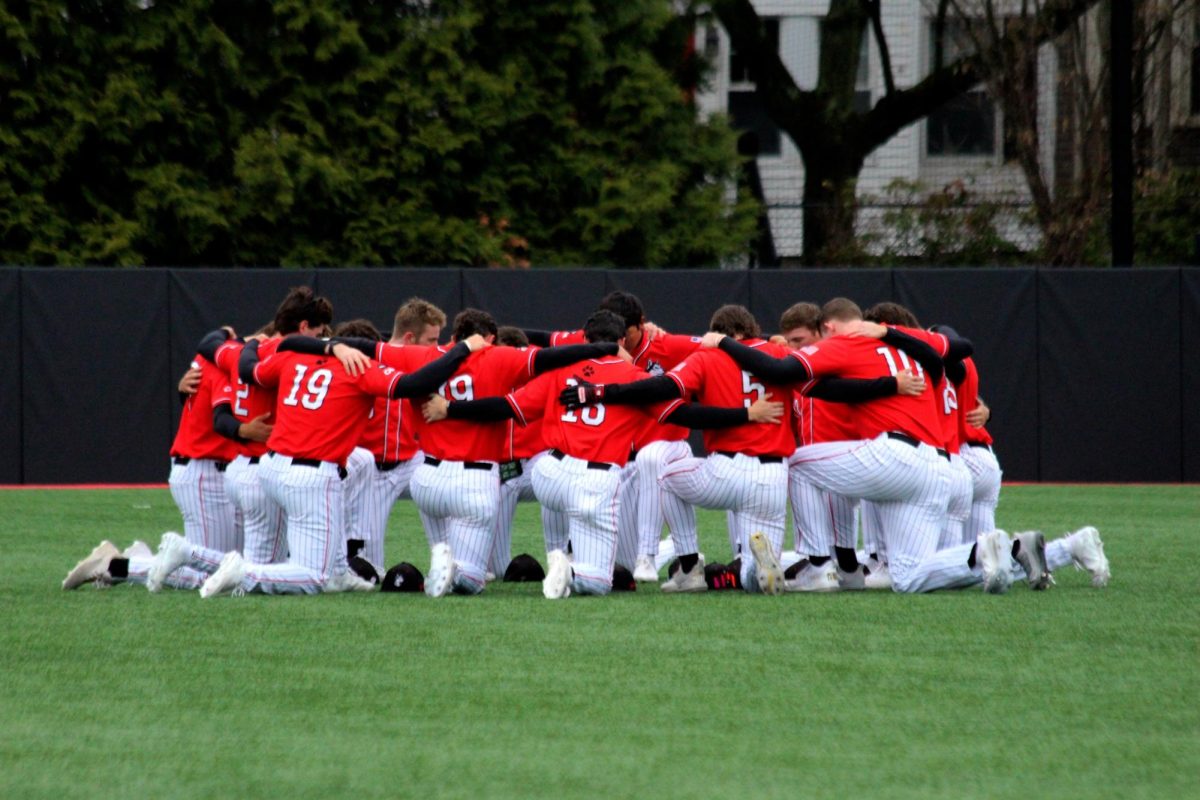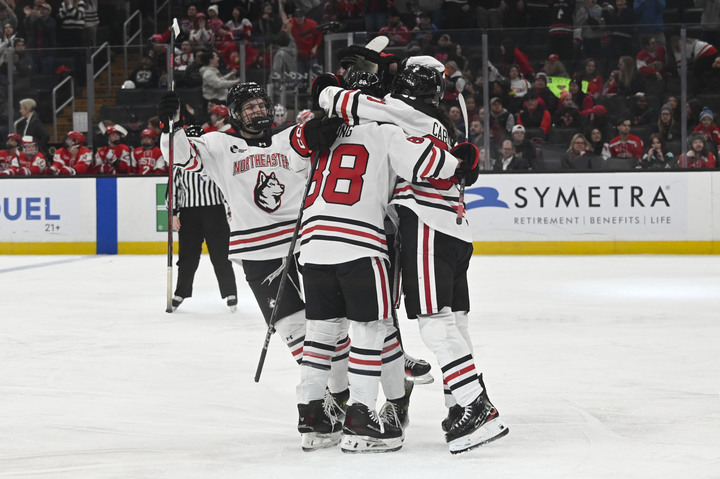Review: ‘Don’t Worry Darling’ feels like a movie — and that’s about it
From director Olivia Wilde, “Don’t Worry Darling” premiered in theaters Sept. 23. Photo courtesy of Warner Bros.
September 30, 2022
“Don’t Worry Darling,” director Olivia Wilde’s sophomore film, has become infamous in recent weeks due to its behind-the-scenes drama. Ironically, the best parts of the film come from behind the camera — on the big screen, the film struggles to find its footing.
The plot centers around young newlyweds Alice (Florence Pugh) and Jack (Harry Styles), who live in Victory, a 1950s suburban utopia in a California desert. Every day, the town’s men work on a top-secret project led by the enigmatic Frank (Chris Pine), while their wives cook, clean and enjoy the luxury of their lives. After witnessing a close friend die in a mysterious accident, Alice decides to find out the truth about Victory — no matter the cost.
“Darling” is undeniably well-crafted. Wilde’s direction has a unique style, which pairs well with John Powell’s exciting score. The film’s pastel-tinged Palm Springs-esque setting is contrasted with spooky optic motifs peeking at its dark underbelly. The film is beautiful to hear and see, but that’s where the depth ends. As Harry Styles astutely said in a now-infamous interview, “Don’t Worry Darling” does indeed “feel like a movie.”
As the beating heart of the film, Florence Pugh is as electric as ever but is essentially giving the same performance as her breakout role in “Midsommar.” In fact, if you want to see Florence Pugh anxiously uncover a warped reality after watching a woman fall to her death, skip “Don’t Worry Darling” and watch “Midsommar” instead.
In her quest to find out the truth about Victory, Alice is lied to and gaslit at every turn. But she always has her husband to turn to — in theory. The majority of the film hinges on Alice and Jack’s love for each other, which is sorely absent from Pugh and Styles’ performances. There is a gaping hole in the film where their chemistry should be — besides some strangely placed sex scenes, the characters may as well be acquaintances.
Eventually, the film reveals that (spoiler alert) Jack has trapped Alice — and himself — in an elaborate simulation in the present day. The concept, while intriguing, is arguably done better in Netflix’s “USS Callister” — do not buy “Black Mirror” from Shein. Alice is an accomplished surgeon, while Jack is an unemployed Discord moderator high on fantasies gleaned from a men’s rights podcast. The film dares to ask the question: what if Harry Styles used Reddit?
The visual differences between Victory and the real world are done well — when the audience is out of the fantasy world, the setting is desaturated and gritty. It’s a shame the film doesn’t spend more time in reality, something that could both ground the plot and further flex Wilde’s directorial skills. This also extends to Styles’, well, styling: the pop singer sheds his shiny skin in a remarkable physical transformation into an incel. But the story immediately ricochets away from present-day Jack back to the simulated Jack of the 1950s, inadvertently obscuring his true intentions.
It’s clear that Wilde is trying to do the thing that made Emerald Fennell’s “Promising Young Woman” work so well — playing with the audience’s perceptions of clean-cut Hollywood “nice guys” based on their previous roles. But this is Styles’ first ever leading role — the audience has no other performances to subconsciously compare Jack to. Instead, Styles’ presence is far more distracting than duplicitous.
Its two leads aside, “Don’t Worry Darling” also manages to underuse every single member of its impressive supporting cast. Alleged spit-recipient Chris Pine is the film’s main villain and creator of Victory. He’s supposed to be a looming threat, yet it’s easy to forget his character exists. Frank’s wife Shelley (Gemma Chan), who is arguably the most interesting character in the entire film, is similarly never given the screen time her intrigue deserves.
Rounding out the film’s ensemble are a troupe of actors based in comedy — Nick Kroll, Kate Berlant and Asif Ali, to name a few — who end up becoming glorified set pieces with nary a one-liner to be found.
“Don’t Worry Darling” doesn’t develop its characters, complicating its feminist message. For a film about women’s rights to autonomy, audiences don’t get a lot of time in its female characters’ heads, including the female lead. This could have been remedied with more references to reality — besides one scene of Alice in scrubs, we barely know anything about her.
This also extends to the other women in Victory, especially the characters of color. Actress KiKi Layne recently alleged that her character (Margaret, who is integral to the plot) was largely cut from the film. Ambiguity around her character’s survival becomes a major plot hole that is never resolved.
Instead of grappling with more complicated social issues, the film opts for low-hanging fruit — corrupted men stripping away women’s rights. It’s certainly not reductive, but a bit on-the-nose. Characters like Shelley could have been a complex exploration of internalized misogyny, but instead are given an unearned, and dare I say, girlboss-y, triumph.
In all, “Don’t Worry Darling” leaves its audience with more questions than answers. Its striking design and visuals aren’t enough to save the film from a swampy mess of a plot. While Olivia Wilde should be proud of her direction, the writing should make her a little worried, darling.
★★☆☆☆







